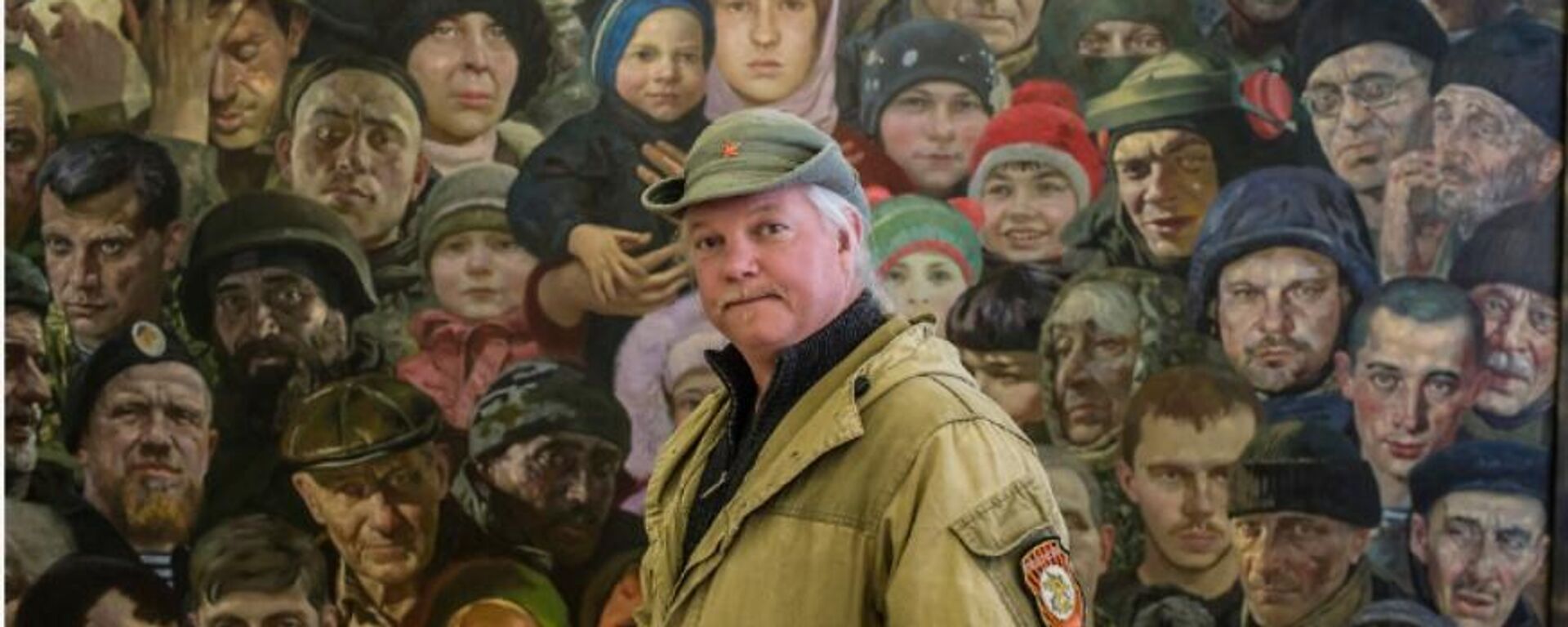Fighting to Win: Donbass is the Place Where the Old World Order is Challenged, French Volunteer Says
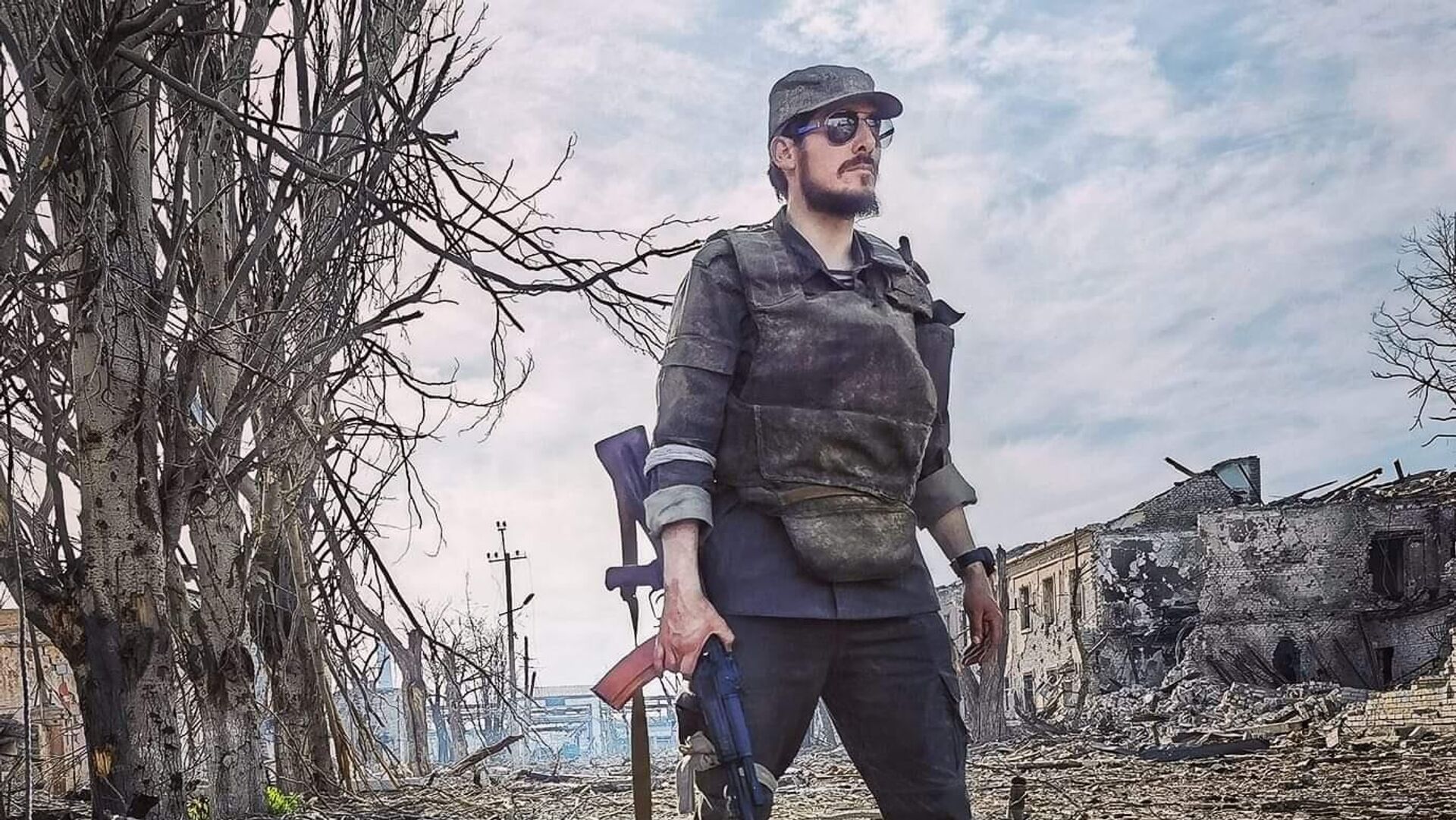
© Photo : François Mauld d'Aymée
Subscribe
François Mauld d'Aymée, a classical tenor and graduate of the Saint-Cyr Military Academy, founded in 1802 by Napoleon Bonaparte, did not expect that his fate would be intertwined with that of Donbass for many years.
"We thought we were only 'on vacation' for a couple of weeks, maybe a month at most… Now eight years have gone by and we comprehend this was a call of destiny to which we answered with an honest and loud 'yes'", says François Mauld d'Aymée, a 34-year old volunteer from Champagne province, France, who came to fight for the Donetsk People's Republic (DPR).
He packed his bags and went to Donbass in 2015 along with French nationals of Russian descent, who were "the fourth generation lineage from those who came [to France] over about a hundred years". Their ancestors were "White Russians", he notes, referring to the Russian monarchist White movement of 1918-1920.
"We got together, we understood each other, and understood we had one and the same Weltanschauung ['world view' - Sputnik] at heart", the French volunteer says. "We had one ideal, one faith, and God forbid that we had no clue what would happen next".
He joined the ranks of the Donetsk People's Republic's (DPR) international brigade "Pyatnashka", which was formed in July 2014. At the beginning of the war, the people of Donbass were deeply distressed by the attacks of Ukrainian government forces and neo-Nazi militant groups.
"Only the brave and the crazy dared to go out on the streets", recalls d'Aymée.
However, the Donbass militias managed to give a fitting rebuff to the attackers. Alexander Zakharchenko, the former head of the DPR, was "the embodiment of what made the Republic" until his death in August 2018, according to d'Aymée.
The volunteer, who calls himself "a Frenchman with a Russian soul", decided to stay in Donetsk, even though it was never his plan. He became a DPR citizen and converted to Orthodoxy.
After the hot phase of Kiev's war in Donbass morphed into "trench warfare", d'Aymée took an active part in the revival of the republic's educational system and cultural life. He taught French at the National Technical University of Donetsk and became a classical singer at the Donetsk Symphony Orchestra.
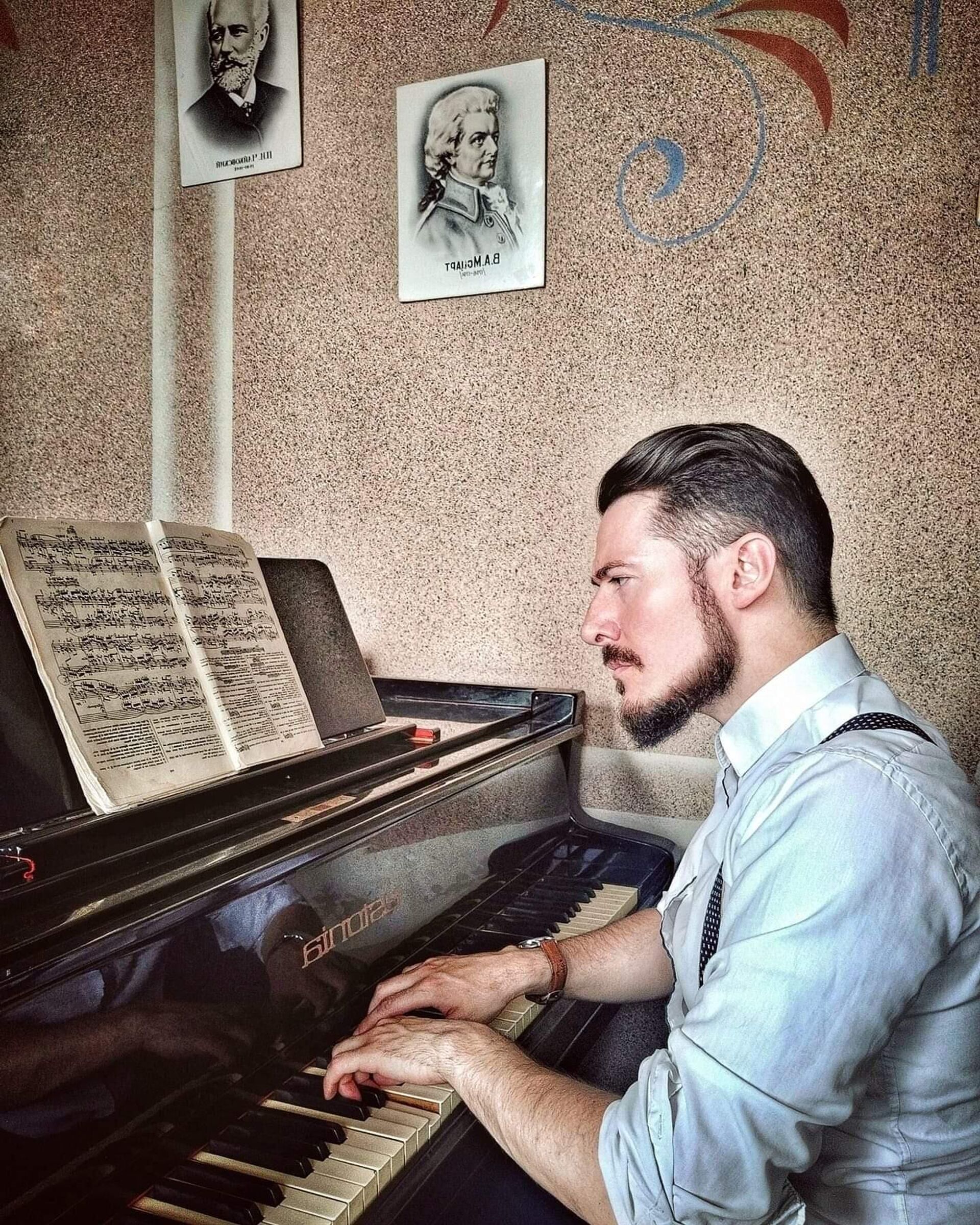
François Mauld d'Aymée at Donetsk State Musical Academy named after S.S. Prokofiev, the Donetsk People's Republic.
© Photo : François Mauld d'Aymée
"I think there really was an honest wish to get a ceasefire and solve the crisis peacefully", he says, citing the Minsk Agreements signed by the Normandy Four in 2014 and 2015. "But the people who were trying to achieve that were of no importance in regard to those that were only looking to fuel the war, and conquer the region, expel the Russian population and replace it with a bunch of thieves from Galicia".
After the Russian special operation to demilitarise and de-Nazify Ukraine began on 24 February, d'Aymée returned to the battlefield. The motto of the Saint-Cyr Military Academy is "Ils s'instruisent pour vaincre", literally meaning "They learn in order to prevail". D'Aymée is fighting to win and he knows that the Russian special operation has a just cause.
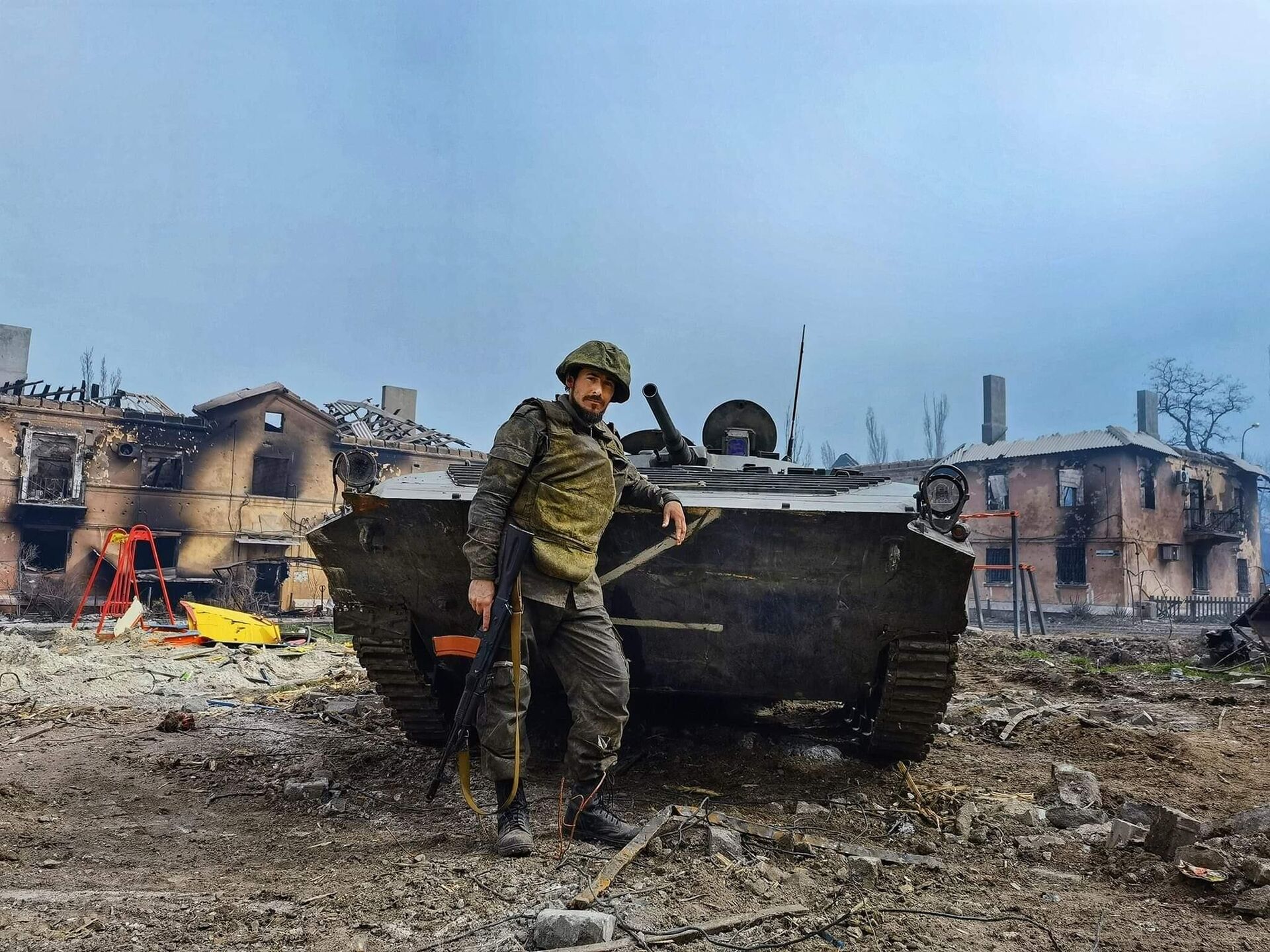
French volunteer François Mauld d'Aymée in Mariupol, Donbass
© Photo : François Mauld d'Aymée
Battle for Mariupol
"Everyone is relieved things are coming to an end", the volunteer says when asked how the people of Donbass reacted to the Russian special op. "We're only sad to think about all those who hadn't the chance to live until this Gordian knot-cutting decision".
D'Aymée took part in the battle for Mariupol, which was recently liberated by Russian-backed DPR forces. While the Western mainstream press largely tends to depict neo-Nazi Azov Battalion fighters as "patriots" and "heroes", this has nothing to do with reality, according to the volunteer. Mariupol civilians feel absolutely no sympathy for them, he remarks.
"Some civilians can tell you stories so gruesome, you just understand it can't be made up", d'Aymée says. "Nobody likes [the Azov Battalion]. Everybody there has witnessed, in the past two months or in the past eight years, daily abject and blind ruthlessness coming from Azov militants".
While the Western corporate media is cherry-picking phrases and facts which fit into their narrative, there are still some foreign journalists who are trying to show the real picture, notes the Frenchman.
"You can refer to Christelle Neant, Erwan Castel or Xavier Moreau and their outlets", he says. "But they are doing everything on their own".
He thinks that this is only temporary and the truth will eventually find its way out.
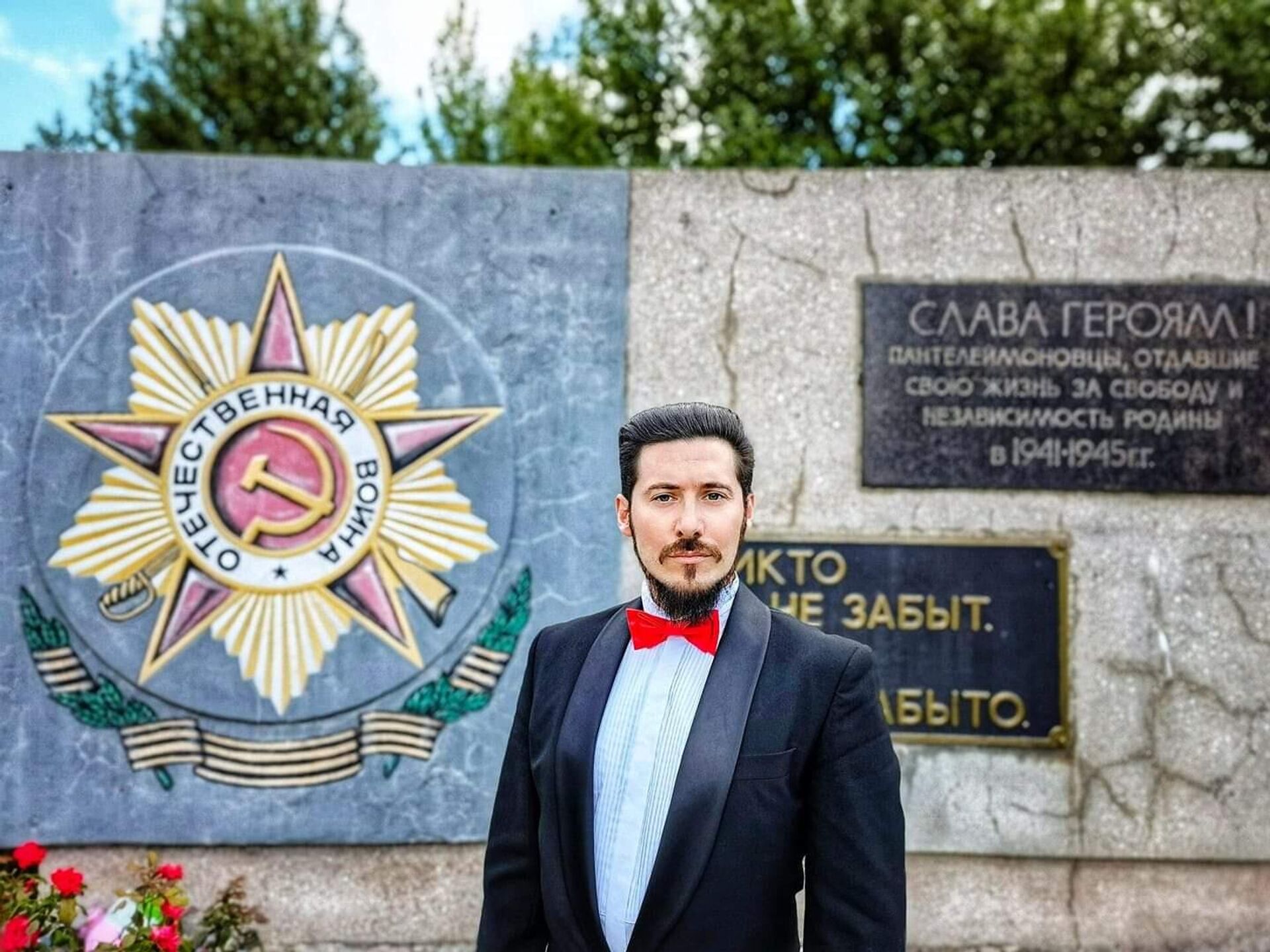
François Mauld d'Aymée in Donetsk, the Donetsk People's Republic.
© Photo : François Mauld d'Aymée
Residents of Mariupol have undergone great stress in recent months, according to the volunteer. "Most of them simply tried to survive", he says. "Deep inside they know that what is happening is for the better. But living through the toughest moments isn't easy and requires a lot of patience and inner strength".
When asked why he decided to go and stay in the war-torn and constantly attacked Eastern Ukrainian region, d'Aymée replies:
"I had the intuition that what would happen in Donbass would deeply challenge the world order".

